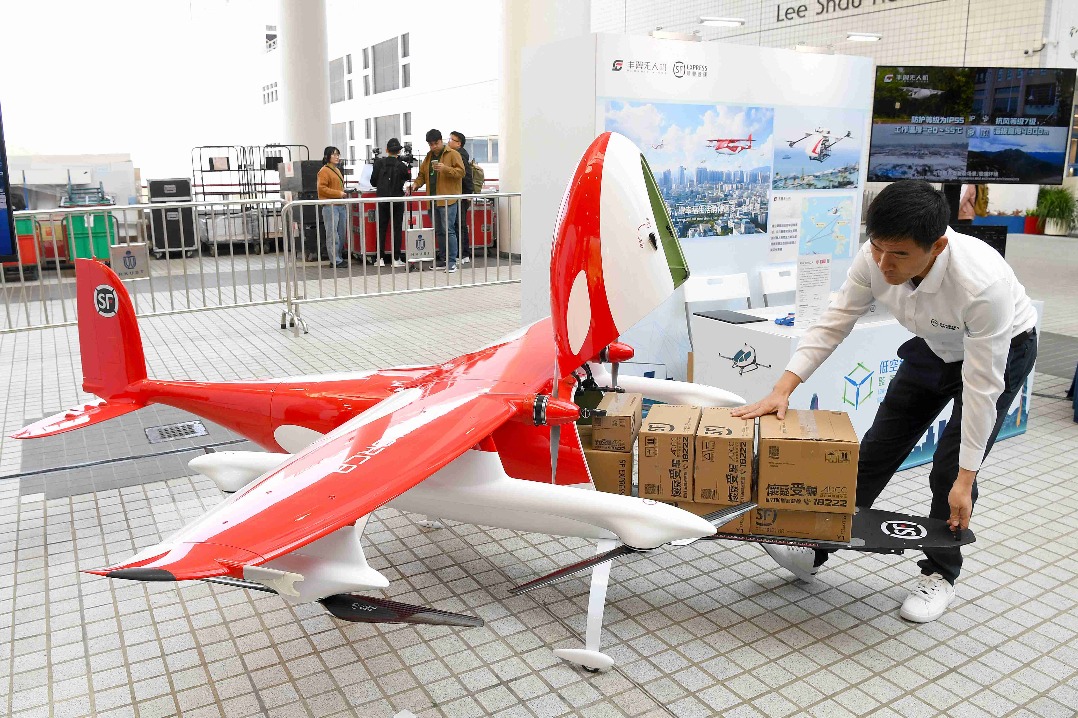China-designed survey calls fortify South Korea


"Hi, this is the health office. Can we kindly take a minute of your time to learn more about your health condition?"
Beginning March 24, some South Koreans have received such artificial-intelligence-powered phone calls. They are part of an AI-powered calling system launched by Chinese artificial intelligence pioneer iFlytek and South Korean software company Hancom.
The move is designed to help South Korea better track those who have had close contact with confirmed cases of the deadly coronavirus. It can also be used to keep track of the health status of discharged patients so as to reduce the burden on front-line medical workers amid the epidemic.
The system, deployed in South Korea via the two companies' joint venture-Accufly. AI-can automatically record the AI phone conversations, therefore saving manpower and time, iFlytek said in a statement.
iFlytek provides AI solutions for the telephone outbound system, and Hancom offers an AI-recognition engine for the Korean language. The system has been custom-made to help South Korea fight the novel coronavirus outbreak.
Wu Xiaoru, rotating president of iFlytek, said in a letter that the company is willing to provide the technology behind the AI-powered telephone outbound system to Hancom free of charge.
'We sympathize with the current epidemic situation in South Korea and iFlytek will fully support Hancom's efforts to battle the outbreak," Wu wrote in the letter to a senior Hancom executive.
iFlytek's move came after its AI technologies have played an active part in containing the epidemic in China. From Jan 21 to Feb 4, its AI-powered calling system benefited some 7.67 million people across the country, including in Hubei province-the region hardest hit by the epidemic-with an average of 800,000 people being called by the system each day.
Industry experts said that such AI voice assistants have been vital since several lower-tier cities still lack medical professionals and staff to work on finding out who may have been affected by the epidemic.
iFlytek also noted that by using the AI voice assistant, the efficiency of screening potentially affected people can be enhanced more than five times.
On Feb 3, when China witnessed a surge of confirmed infections, Hancom donated 20,000 masks and critical equipment to Anhui province, where iFlytek is based.
iFlytek said it remembered Hancom's generosity during China's time of need.
"In the face of such a big challenge, Chinese internet companies have shown high efficiency and flexibility," said Lu Chuanying, director of the research center for global cyberspace governance in the Shanghai Institutes for International Studies.
"With the help of their technology, including artificial intelligence, big data and cloud computing, these internet firms have become the most effective helpers for the government and society," Lu said.
In addition to helping South Koreans fight the epidemic, iFlytek also offered translation services for some Australian medical institutions.
iFlytek has been exploring how to use AI technologies to better assist healthcare workers for a long time.
In 2017, its medical robot aced the written test of China's national medical licensing examination-a test that aspiring doctors need to pass-thus becoming the first device in the world to achieve the feat.
The AI-enabled robots are now being deployed in hospitals in East China's Anhui province. They can automatically collect and analyze patient information and provide initial diagnosis. This can greatly help doctors improve treatment efficiency.
"The robots can now function as general practitioners and help doctors treat more than 100 kinds of diseases," said Liu Qingfeng, chairman of iFlytek, in an earlier interview.
The move is part of a broader push by China to accelerate the application of AI in healthcare, which has become increasingly necessary as the country's aging population continues to rise.




































